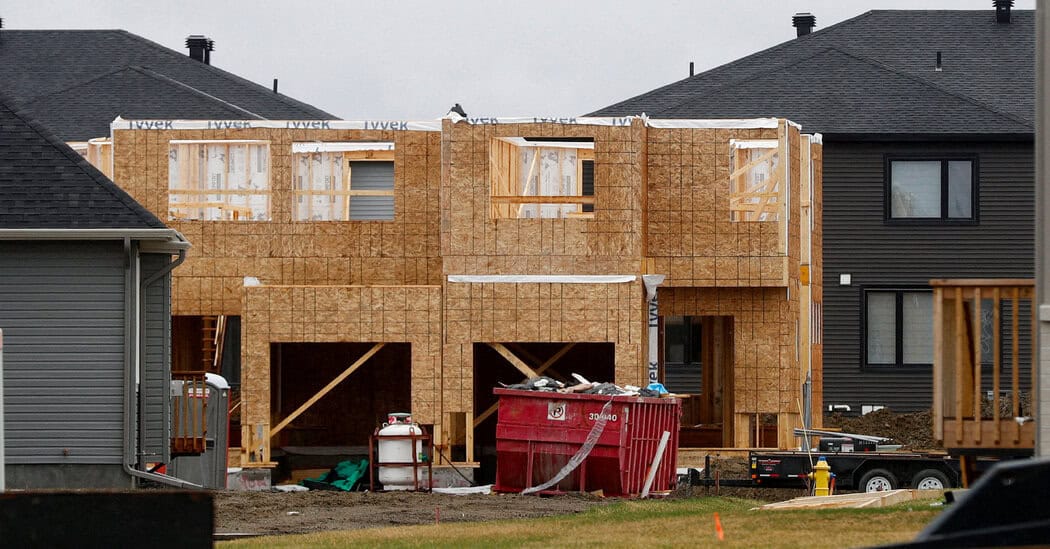
Few Good Solutions as Home Affordability Plummets
Charles St-Arnaud, the chief economist at Alberta Central, the central bank for the province’s credit unions, started out his inquiry with a simple question: How far would prices need to fall, or would incomes need to rise, to make housing affordable again in Canada?

Building more houses won’t solve Canada’s affordability problem in many cities, economists say.Credit…Lars Hagberg/Reuters
The answer for most cities in Canada is “too much.”
Mr. St-Arnaud’s research, published this month, presents a major obstacle to efforts to make housing in Canada more affordable. It suggests that the proposals being offered by many politicians — building more houses to lower prices by increasing supply — are unlikely to make a big difference.
By most measures, houses are now so costly in much of Canada that affordability has reached a four-decade low. Back in the early 1980s, the squeeze was created by mortgage rates of more than 18 percent. Today, of course, it’s the product of a steep increase in prices that took place over about a decade and accelerated during the pandemic. That rise ebbed somewhat when the Bank of Canada increased interest rates, but so far that has not meant substantive price drops.
In the cities where Canada’s real estate mania has been the greatest, Mr. St-Arnaud’s findings are startling. He calculated that prices would need to plummet 39 percent in Toronto, 33 percent in Vancouver and 30 percent in Montreal based on current incomes. Or, to flip things around, incomes would need to grow by 65 percent in Toronto, 50 percent in Vancouver and 43 percent in Montreal.
Mr. St-Arnaud did find some good news. Houses remain affordable in Calgary, Edmonton and Winnipeg. (For his calculations, Mr. St-Arnaud defined affordable housing as not consuming more than 30 percent of its owner’s after-tax income, including utilities, property taxes and insurance. He also assumed that homeowners put 20 percent of the purchase price in a down payment and spread their mortgages out over 25 years — the typical arrangement in Canada.)
